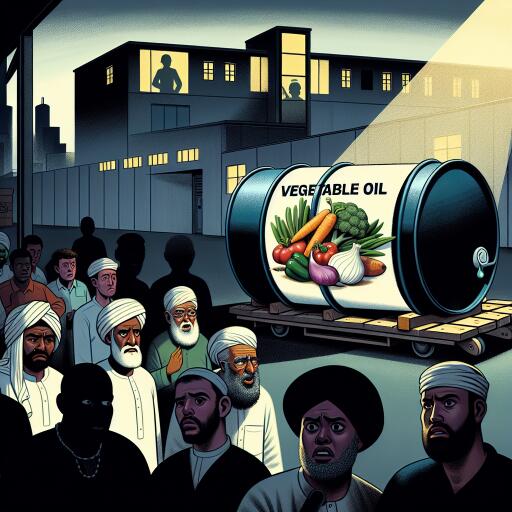Constant Smuggling of Vegetable Oil to Ghana Threatening Workers’ Livelihoods – OPDAG
The Oil Palm Development Association of Ghana (OPDAG) has raised concerns over the rampant smuggling of vegetable oil into the nation via unapproved channels. This act, perpetrated by a section of the trading community, not only undermines local productivity, which amounts to over 600,000 metric tonnes of vegetable oil production every month, but also jeopardizes the livelihoods of countless individuals employed within the sector.
As the industry teeters on the edge of a potential collapse, the illegal importation of vegetable oil from foreign countries poses a serious threat. Executive Secretary of OPDAG, Selorm Quame, revealed the daunting figure of approximately 560,000 farmers alongside 300,000 employees within the oil palm and refinery sectors facing the looming specter of unemployment due to these smuggling activities.
In efforts to address this menace, a sensitization workshop was organized in Accra for market women, aimed at strategizing on how to effectively counteract the smuggling of vegetable oil into the market. During this session, Quame expressed concerns regarding the inability to guarantee the safety and hygiene standards of the smuggled vegetable oils, an assurance that locally produced oils, adhering to stringent Food and Drugs Authority/Ghana Standard Authority certifications, readily provide.
Quame emphasized OPDAG’s commitment towards fostering sustainable palm oil production, processing, and trading practices within Ghana, ensuring the sector’s longevity and integrity.
William Agyapong Quaittoo, the Chief Executive Officer (CEO) of the Tree Crop Development Authority (TCDA), highlighted the financial ramifications of this smuggling, noting that it facilitates tax evasion and allows smugglers to undercut local producers with unsustainably low pricing. This unfair competition has led to significant losses for domestic producers, exacerbating the industry’s challenges.
In response, Quaittoo called upon market women to collaborate with the task force dedicated to combating these fraudulent activities. He stressed the importance of purging the market of these detrimental practices to safeguard and promote the prosperity of local oil production.
Paul Amaning, Coordinator of the Task Force, reiterated the TCDA’s mission to prioritize the sale of locally manufactured cooking oils, which in turn would bolster the nation’s economy and generate employment opportunities across the value chain.
The discourse also welcomed insights from representatives of the Customs Division and National Security, who discussed the intricate challenges posed by the smuggling of vegetable oil through unauthorized channels. They implored market participants to exercise due diligence and adhere to national regulations when dealing in vegetable oil.
Furthermore, the proposal to incorporate market women into the task force was met with enthusiasm. Such collaboration is seen as a crucial step towards effectively curbing the activities of smugglers in Accra’s marketplaces, thereby ensuring a thriving environment for local producers and safeguarding the livelihoods of those involved in Ghana’s oil palm industry.
As OPDAG and its partners strive to combat the smuggling of vegetable oil into Ghana, the collective effort of government authorities, industry stakeholders, and the community at large remains pivotal in securing a sustainable future for the oil palm sector and its dependents.
